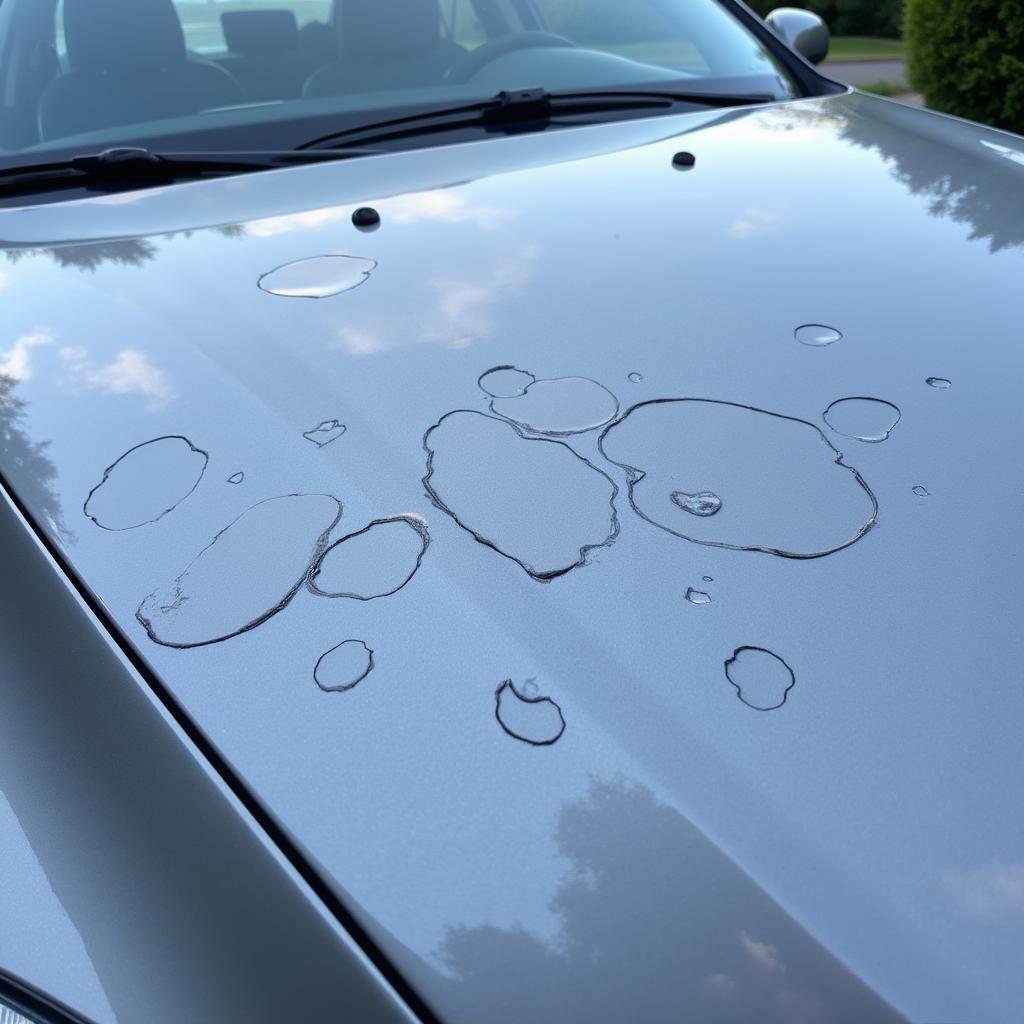Keeping up with your car’s maintenance can feel like a chore, but it’s essential for ensuring your vehicle runs smoothly and safely for years to come. Neglecting these routine checks can lead to costly repairs and even jeopardize your safety on the road.
So, What Are Some Examples Of Normal Car Maintenance you should be aware of? Let’s break it down into manageable tasks you can tackle yourself or take to a trusted mechanic.
Essential Car Maintenance Tasks You Should Never Skip
These maintenance tasks are crucial for the health and longevity of your vehicle:
1. Regular Oil and Filter Changes
Think of oil as your car’s lifeblood. It lubricates the engine’s moving parts, reducing friction and preventing wear and tear. Over time, oil breaks down and becomes less effective.
How often? Check your owner’s manual for specific recommendations, but a general guideline is every 3,000 miles or 3 months, whichever comes first.
Why it matters? Regular oil changes prevent engine damage, improve fuel efficiency, and extend the life of your engine.
2. Air Filter Replacement
Your engine needs to “breathe” to function correctly. The air filter traps dust, dirt, and debris from entering the engine and potentially causing damage.
How often? Ideally, replace your air filter every 12,000 miles or annually. However, if you frequently drive in dusty or polluted environments, you might need to replace it more often.
Why it matters? A clean air filter ensures optimal engine performance, improves fuel economy, and reduces harmful emissions.
3. Tire Maintenance
Your tires are your only point of contact with the road, making their maintenance critical for safety and handling.
What to do?
- Check tire pressure monthly: Use a reliable tire pressure gauge and inflate your tires to the recommended PSI (pounds per square inch) found in your owner’s manual or on a sticker inside the driver’s side door jamb.
- Inspect tire tread depth: Use a tread depth gauge or the penny test to ensure your tires have enough tread for optimal grip and safety.
- Rotate tires: Rotating your tires every 5,000-8,000 miles ensures even wear and tear, extending their lifespan.
Why it matters? Proper tire maintenance ensures optimal vehicle handling, braking efficiency, and fuel economy.
4. Brake Inspections
Your brakes are your vehicle’s most crucial safety system. Regular inspections are vital for ensuring they function correctly.
How often? Have your brakes inspected at least once a year or if you notice any signs of problems like squealing, grinding, or a soft brake pedal.
What to check? Mechanics will check the brake pads, rotors, calipers, and brake fluid levels.
Why it matters? Regular brake inspections prevent brake failure and ensure your safety on the road.
5. Battery Maintenance
Your car battery provides the initial power to start your engine.
What to do?
- Check battery terminals: Inspect for corrosion and clean them with a wire brush and a baking soda and water solution if necessary.
- Have the battery tested: A mechanic can test your battery’s charge and health to determine if it needs replacement.
Why it matters? Maintaining your battery ensures your car starts reliably and avoids unexpected breakdowns.
Important but Less Frequent Car Maintenance
While not as frequent as the tasks mentioned above, the following maintenance items are still crucial for your car’s long-term health:
- Coolant Flush: The coolant keeps your engine from overheating. It’s recommended to flush and replace your coolant every 30,000-50,000 miles or as recommended by your owner’s manual.
- Transmission Fluid Change: Transmission fluid keeps your car shifting gears smoothly. Refer to your owner’s manual for recommended service intervals, typically between 30,000 and 60,000 miles.
- Spark Plug Replacement: Spark plugs ignite the fuel in your engine cylinders. Worn-out spark plugs can lead to engine misfires and reduced performance. Refer to your owner’s manual for replacement intervals, generally between 30,000 and 100,000 miles.
- Timing Belt/Chain Inspection: The timing belt or chain synchronizes your engine’s valves and pistons. A broken timing belt can cause catastrophic engine damage. Check your owner’s manual for recommended inspection and replacement intervals.
Prolonging Your Car’s Life: Expert Insights
“Many car owners underestimate the impact of regular maintenance,” says John Miller, a seasoned automotive engineer with over 20 years of experience. “Sticking to a routine maintenance schedule is the single most effective way to prevent major repairs, extend the life of your vehicle, and ensure its value over time.”
He further emphasizes, “Don’t wait for warning signs. By the time your car shows symptoms of a problem, it’s often too late. Preventative maintenance is always more affordable than reactive repairs.”
Maintaining Your Investment
Normal car maintenance is not just about checking items off a list; it’s about protecting your investment. A well-maintained car is more reliable, safer to drive, and retains its value better.
If you’re unsure about any aspect of car maintenance, don’t hesitate to contact a trusted mechanic or consult your owner’s manual. Remember, investing a little time and effort in your car’s upkeep can save you significant money and headaches in the long run.
Need help with car maintenance or repairs? Contact AutoTipPro at +1 (641) 206-8880 or visit our office located at 500 N St Mary’s St, San Antonio, TX 78205, United States. Our team of expert technicians is here to assist you.





Leave a Reply